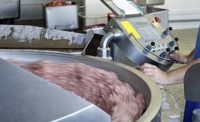Study: Meat substitutes recorded $19.5B in sales globally in 2018
The United States, Russia and the UK show the highest increases in the share of consumers worrying about climate change.

Research from Euromonitor International, UK, unveiled the impact of climate concerns on dietary habits.
In fact, 24% of the global consumers surveyed are trying to cut down their meat intake, driving sales of global meat substitutes to reach $19.5 billion in 2018.
“Meat intake is mostly reduced by consumers trying to reinforce healthier eating habits and worrying about climate change. Growing attention to welfare for animals, farmers, societies and employees at large is also noticed among them,” says David Hedin, consultant. “According to Euromonitor International’s Lifestyles survey, 41.9% of respondents think climate change will increasingly impact their life in 2019-2024.”
The United States, Russia and the UK show the highest increases in the share of consumers worrying about climate change. In India, Brazil and China, at 77%, 72% and 66% of respondents, respectively, try to have a positive environmental impact through their everyday actions.
“Despite the global growth of meat substitutes’ sales and consumption, the meat industry is still expected to grow at a faster rate by 2023. Pricing and availability of meat substitutes are two key factors that currently hold back its penetration worldwide,” says Hedin.
Looking for a reprint of this article?
From high-res PDFs to custom plaques, order your copy today!




